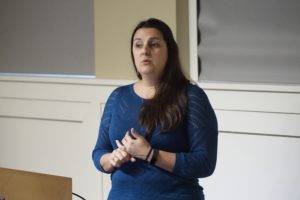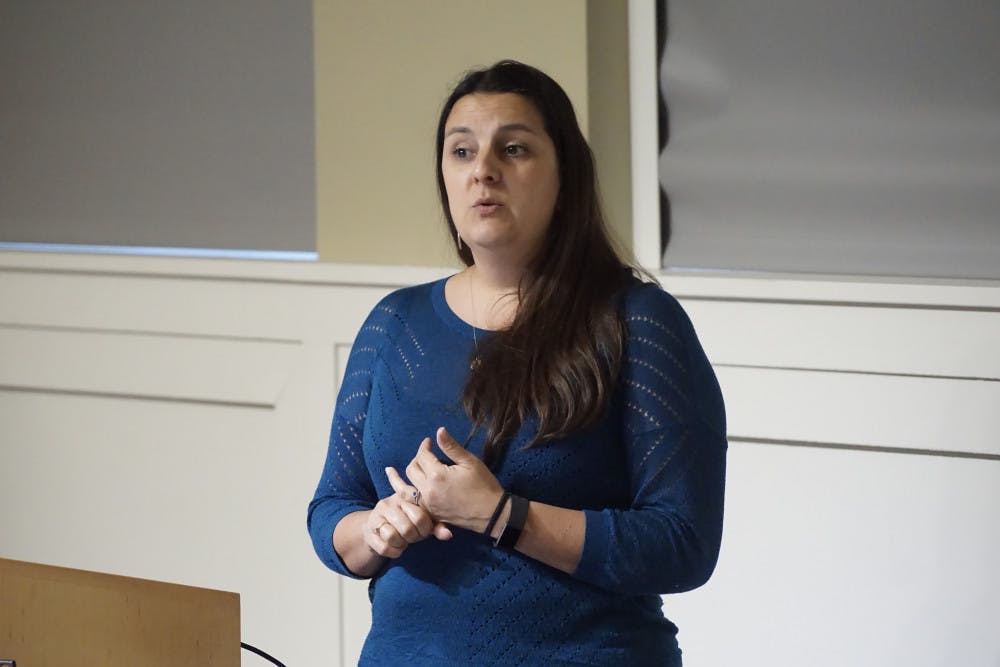By Arshya Chopra
Correspondent
Forensic anthropologist Angela Soler does not study immigration in the way most researchers do — she works along the border and returns the remains of the dead back to their families.

Soler spoke to students about undocumented migrant deaths on the U.S.-Mexico border on Tuesday, Oct. 23 in the Education Building Room 100.
Soler is currently a primary research member of the American Academy of Forensic Scientists. She spoke about the humanitarian crisis behind the immigration issue and its long-lasting effects.
“Undocumented migrants are dying in the deserts of U.S. borderlands,” she said. “The crisis is a cause of economic marginalization, distrust on the government, civilian victimisation and government incapability.”
According to Soler, people need to focus on limiting the deaths of largely innocent people who are simply in search of a better life. People make the decision to immigrate for a variety of reasons — some want to improve their economic status while others cross the border to escape violence on the streets of their home country or to reunite with their family members who successfully fled years ago.
The main causes of death for migrants include snake bites, falling in the desert and vehicular accidents, according to Soler.
“Since 1994, over 7,000 people have died crossing the U.S. border,” she said. “In the heat of a summer, someone can become completely skeletonized within a week.”
The journey of crossing the border is dangerous and often costly. Many save up for years to pay a smuggler to help them cross the border. This journey is tough and the migrants are directly subjected to morbid geographical conditions and safety hazards, according to Soler.
Soler is in collaboration with the Colibri Center for Human Rights, a non-governmental organization that works to end migrant death and related suffering along the U.S.-Mexico border.
“The NGO helps raise consciousness about the scenario on the border to spread awareness about the serious human rights crisis,” she said. “They take detailed information about the dead immigrant on their database and through a series of biomedical research, they help in matching them with their family.”
Soler spoke at the College in an effort to raise awareness about an issue that she believes in unrepresented in the discussion of immigration. According to Soler, those who do not have a direct connection to the border lack exposure to the topic.
“Unless you physically live in the border region, it’s not something that many people are even aware of,” she said.
According to Soler, people often feel that the socio-economic fabric of their country will start changing with an influx of immigrants, which creates a fear and criminalization of immigration. Because of this fear among U.S. citizens, many are afraid that reporting a missing family member will result in legal consequences.
“How many people want to approach law enforcement when their family went missing at the border?” she said. “There are a lot of individuals who haven’t even been reported as missing at this point. For every deceased individual, you have to think about the other side of the issue— all the people that are still missing.”







